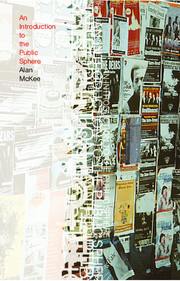5 - Apathy
Published online by Cambridge University Press: 05 June 2012
Summary
The Internet has changed the nature of the public sphere in Western democracies. It's revitalized traditional grass-roots political involvement, for example (as with the ultimately unsuccessful Howard Dean presidential campaign in the USA in 2003–2004). But more than this, it's become part of an important rethinking of what actually constitutes politics. The emerging ‘anti-globalization’ movement brings together the medium of the Internet with a primarily young demographic, and a rethinking of the nature of activism — through ‘culture jamming’ — to create a new version of politics.
Culture jamming attempts to change the way that people think about the world by playing with existing culture, and thus introducing new ideas into the public sphere (Kerr, 2002: 1). It's been most visibly applied in campaigns against globalization and big-business capitalism. In 2000, Andrew Boyd, a ‘grass roots publicist from New York’, designed the ‘Billionaires for Bush’ campaign, to draw attention to the fact that mainstream politicians were being bought off by massive campaign donations from corporations:
We created a stylish logo. ‥ ‥ [and r]iffing off slogans like … ‘Corporations are people too’ and ‘We're paying for America's free elections so you don't have to’ … we created bumper stickers, buttons, a series of posters and a website … The media were all over us … it was a feeding frenzy … It took ingenious ‘viral design’ to get our message through the corporate media's editorial filters and out into the datasphere at large … The protein shell of our virus: ‘Billionaires for Bush’ … Our … hidden ideological code: ‘Big Money owns both parties; both parties are roughly the same.’
(in Kerr, 2002: 2–3)- Type
- Chapter
- Information
- The Public SphereAn Introduction, pp. 172 - 203Publisher: Cambridge University PressPrint publication year: 2004

